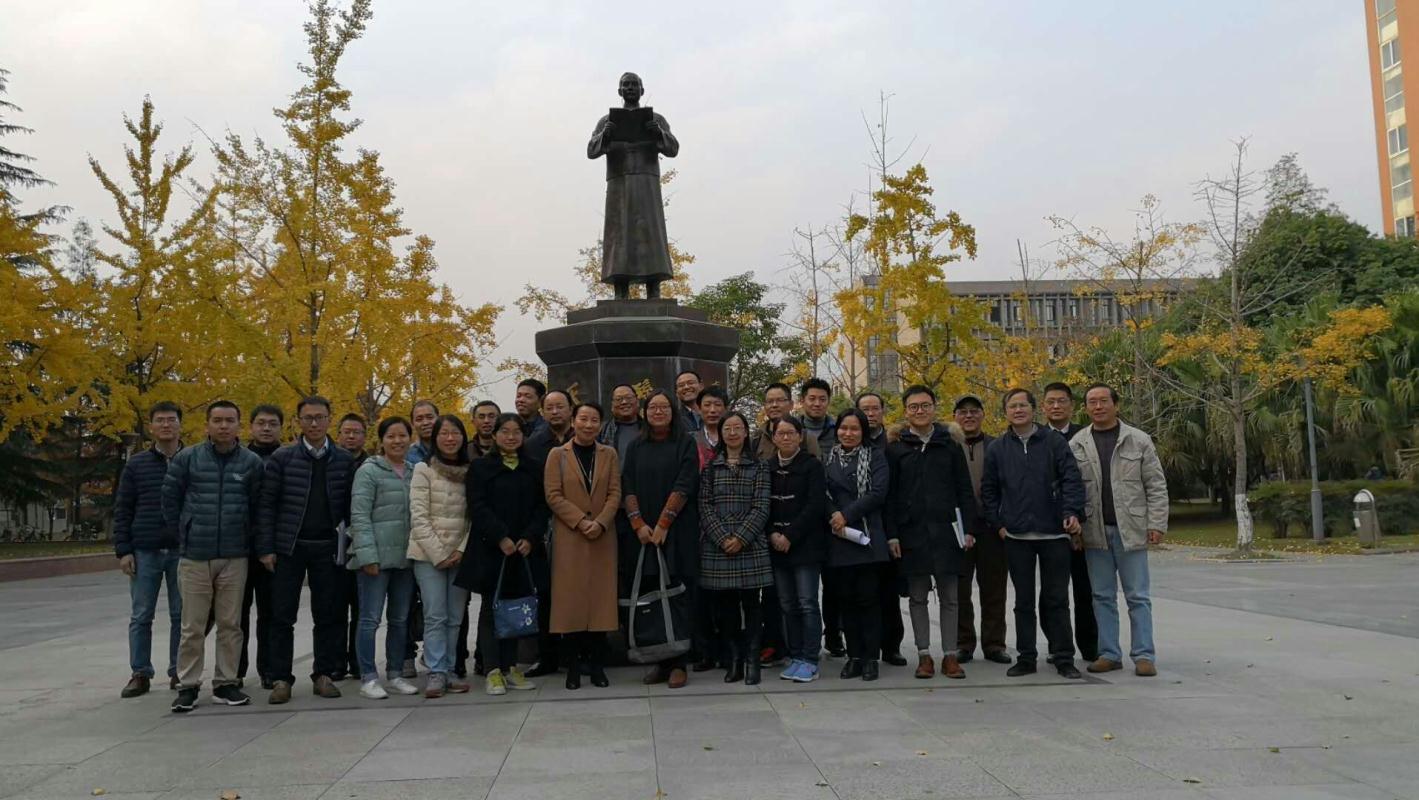
Brief Introduction of the Department of
Information and Computing Science
Department Culture
Academic Rigour; Work Efficiently;
Simple and Pragmatic; Friendship and Harmony.

Director of the department:Hailiang Zhao
Party branch secretary and vice director:Yang Yang
Teaching Staff
There are 30 teachers in the department, including 6’ Doctoral supervisors, 7’ Professors, 9’ Associate professors and 14’ Lecturers.
Historical Evolution
The School of Mathematics, formerly known as the Department of Applied Mathematics, was equipped with four teaching and research groups, i.e. applied mathematics, basic mathematics, probability statistics and public mathematics. In the middle and late 1990s, the applied mathematics team of the Department of Applied Mathematics, leading by Professor Yang Xu, took the rise of fuzzy logic and fuzzy system control as an opportunity to win support from a number of research funds, which include the National Natural Science Foundation, Major product development projects of the State Economic and Trade Commission, research topics in factories and enterprises. Several patents on utility models have been obtained at that time as well. Beijing Science and Education film studios had come to take materials for some films about the topic of fuzzy logic. A number of television stations have also reported these achievements. In the later development process, according to the unified departmental adjustment of the university, the Department of Applied Mathematics, was merged into College of Science to become a three-level unit. In 2008, it was separated from the College of Science. Based on it, the School of Mathematics was established. The original group of basic mathematics has developed into Department of Mathematics, and the group of Statistics has become Department of Statistics, while the applied mathematics group has developed into the current Department of Information and Computing Science.
The Department of Information and Computing Science is composed of teachers from the areas of applied mathematics, computational mathematics, operations research and control, information coding and computer science. It has its own characteristics and advantages in system reliability verification, automated reasoning and intelligent information processing, information coding. Among them, there are winner of 100 excellent doctoral dissertation in China, young and middle-aged experts with outstanding contributions from the state, members in thousands of scholars in Sichuan Province, members outstanding youth in Sichuan Province, and Eagle program in university.
Teaching and Research Groups
Automated theorem proving and information processing
Yang Xu, Zhenming Song, Shuwei Chen,
Peng Xu, Xingxing He, Xiaomei Zhong
Information coding
Zhengchun Zhou, Cuiling Fan, Yang Yang,
Deng Tang, Dongchun Han, Haode Yan.
Intelligent information processing and data science
Hailiang Zhao, Tianmin Huang, Keyun Qin,
Xiaodong Pan, Hua Meng, Mingwen Wang,
Mei Han, Xiaomei Yan, Shuxia Ma.
Computational Mathematics
Chengjing Wang, Guozhu Yu, Luoping Chen,
Zhangyou Chen, Lina Hu, Yufang Huang,
Operations and control theory
Hailiang Zhao, Tianmin Huang, Li Deng,
Research Projects
The department of information and computing sciences has been granted 36 projects from the National Natural Science Foundation of China, among which 11 are the national natural science general projects. Here are some of the ongoing natural science general fund projects:
“Research on Uncertainty Reasoning Based on Fuzzy Soft Set” 2015-2018.
“Research on Some Combinatorial Objects in Sequence Coding” 2016-2019.
“Contradiction Separation Based Dynamic Automated Deductive Reasoning” 2017-2020.
“Research on New Functions With Differential Uniformity and Theirsequences and Codes” 2017-2020.
“Constructions of Optimal OFDM Sequences Under Spectrum Hole Constraint And Their Applications” 2018-2021.
“Research on Several Key Problems of Nonlinear Cryptographic Functions” 2019-2022.
Teaching Task
To undertake teaching and construction tasks for under graduate courses on information processing, and the daily works for training and management of the master students on Applied Mathematics
Laboratory Construction
The "Data Processing and Simulation Control Laboratory" is being prepared. There are intelligent car, multiple sets of robot secondary development system and Labview/CVI development platform. Both robotic system and intelligent vehicle system are specially designed for students with mathematics background (without hardware base). They only need to concentrate on the implementation of algorithms based on graphical programming and C language programming. They can easily verify control theory and algorithms, discover problems quickly, and make abstract theoretical research "visible". In this way, abstract theoretical research can be transformed into a problem-driven experimental research of "seeing" and "touching", which is more pertinent and attractive to students.